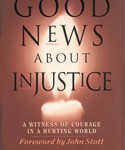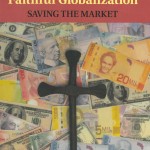There have been a number of tragedies recently in our world. In Nairobi, Kenya recent attacks at the upscale Westgate mall by terrorist group Al-Shabaab injured close to 200 people and 67 were reported murdered. In Peshawar, Pakistan, at least 60 Christians were killed outside a church by suicide bombers this past Sunday. In Washington, D.C., a U.S. citizen and former navy reservist murdered twelve people at the Navy Yard.
The United States is considering military actions towards Syria after the use chemical warfare by the government; the nerve agent sarin was used near Damascus, and left at least 1300 dead and 3600 people displaying neurological symptoms. This attack comes after two years of a civil war that has left around 100,000 dead in the country. Here, the perpetrators are both “legitimate” government actors and rebel forces.
 One of the goals of those perpetuating the violence—whether an individual, a terrorist group, or a government—was to invoke fear. One response of those in power has been to try and take away the power these violent actors have. One of the central premises that Gary Haugen argues in The Good News about Injustice (InterVarsity Press, 1999) is that those perpetrating injustice have to be stopped, and if they continue to have power, the abuse will also continue.
One of the goals of those perpetuating the violence—whether an individual, a terrorist group, or a government—was to invoke fear. One response of those in power has been to try and take away the power these violent actors have. One of the central premises that Gary Haugen argues in The Good News about Injustice (InterVarsity Press, 1999) is that those perpetrating injustice have to be stopped, and if they continue to have power, the abuse will also continue.
However, another response in these instances mentioned above has been to characterize the perpetrators as a special kind of evil. The incidents above are clearly horrific, as are a number of “normal” events that occur habitually—the marrying off of young girls in forced marriages, the shooting and deaths of young people in many U.S cities, and forced human trafficking that occurs around the world. Yet recognizing the evil in these acts, and the need to stop those perpetrating evil, is different than categorizing these actors as human outliers in their capacity for evil.
 The cause of these horrific events is more complex that evil people triumphing over good people. In Ordinary Men: Reserve Police Battalion 101 and the Final Solution in Poland (Harper Collins, 1998), Christopher Browning considers why Nazi soldiers were involved in the killing and bloodshed of the Holocaust. In seeing the “normal” character of many of these men (whose interviews he consults), one of the book’s disturbing conclusions is the evil that “normal” people can commit and rationalize.
The cause of these horrific events is more complex that evil people triumphing over good people. In Ordinary Men: Reserve Police Battalion 101 and the Final Solution in Poland (Harper Collins, 1998), Christopher Browning considers why Nazi soldiers were involved in the killing and bloodshed of the Holocaust. In seeing the “normal” character of many of these men (whose interviews he consults), one of the book’s disturbing conclusions is the evil that “normal” people can commit and rationalize.
I’ve been rereading Seymour Lipset’s Continental Divide: The Values and Institutions of the United States and Canada (Routledge, 1990). Even as this book is 23 years old, he makes some assessments about the U.S. ideology that still prove useful, and helpful to me in understanding a national tendency to want to see people as evil or good.
The American Protestant religious ethos has assumed, in practice if not in theology, the perfectibility of humanity and an obligation to avoid sin, while the churches whose followers have predominated in Europe, Canada, and Australia have accepted the inherent weakness of people, their inability to escape sin and error, and the need for the church to be forgiving and protecting (79)
Since Lipset wrote this book, America waged a war where the talk of the “axis of evil” became prominent in national rhetoric. In contrast to “evil,” stands those who are on the side of what is good and just. As Lipset writes a couple of pages earlier, “Protestant propensity for moralistic crusades has been expressed in various efforts to reform the rest of the world by war” (77); these wars are often framed as good guys against bad guys.
What does it look like to see the evil in these atrocities, to fight for justice and to stop abuse and violence, yet to also recognize the complexity of why people commit these crimes? These incidents are connected to larger societal stories about political power and alliances, provision of the state, and beliefs about the value of different people based on demographics.
What does it mean to be a part of the fight against evil in this world (a desire, I suspect, many of us have)? As I reflect upon this, I realize I have more questions than answers. As Christians, I believe it requires recognizing that all of us are sinners and capable of great evil. It calls us to be a Church that walks with those who are suffering, and offers healing to those who are mourning. It means protecting those who are being exploited or abused. It challenges us to serve as a prophetic voice against injustice—not only obvious violent acts, but also the ways systems are also part of that violence.











